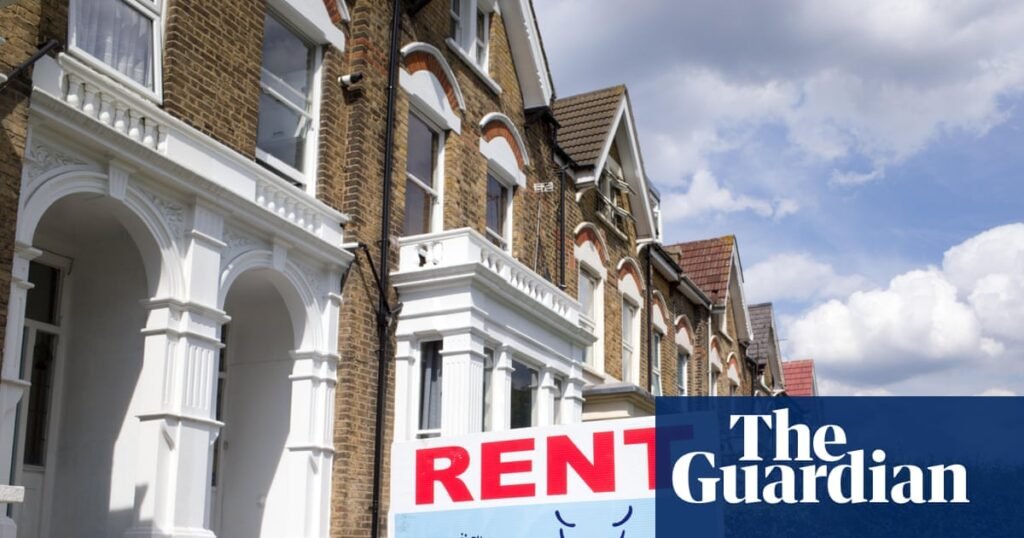The Treasury is reportedly considering a tax on landlords that will target income from rents in the autumn budget.
The proposals are centred on the expansion of national insurance to include rental income, which is currently exempt from the levy, as part of a broader push to plug a potential £40bn shortfall in the public finances.
Labour insiders told the Times that property income was “a significant potential extra source of funds” and landlords were seen as a way of targeting “unearned revenue”.
Currently, earnings from property, savings and pensions are largely exempt from national insurance. However, widening national insurance, which usually applied employee earnings at a rate of 8%, to include rental income could reportedly end up raising about £2bn.
Earlier this month a Guardian analysis revealed that four cabinet ministers, including the chancellor, Rachel Reeves, had declared rental income from property in the MPs’ register of interests. One in eight MPs declared a rental income from property in the past year, including 43 Labour MPs, 27 Conservatives and seven Liberal Democrats.
Some analysts are warning that property taxes, including on landlords, could have wider consequences, including for tenants.
Tom Bill, head of UK residential research at Knight Frank, said: “Targeting landlords won’t lose the government many votes but such moves invariably end up hurting tenants.
“With landlords already selling up ahead of the renters’ rights bill and tougher green regulations, another disincentive would reduce supply further and put upwards pressure on rents. Those that stay may pass on the extra costs in other ways. Governments need to fully appreciate that when you tax an activity, you get less of it.”
Meanwhile, the property website Zoopla said speculation around potential property taxes in Reeves’s autumn budget could dampen demand and hit the price-sensitive housing market.
It said the speculation “may make some buyers consider a wait-and-see strategy. This covers those who may possibly save money on purchases under £500,000 and concern among those buying over this level as well.”
The Guardian revealed earlier this month that Reeves is considering a tax on the sale of homes over £500,000. Officials have been examining a potential national property tax, which would replace stamp duty on owner-occupied homes. They have been studying whether, after the national tax, a local property tax could then replace council tax in the medium-term in an effort to repair battered local authority finances.
Reeves is also reportedly weighing up the removal of the capital gains tax exemption on primary residences above £1.5m as ways to boost income for the government.
after newsletter promotion
The education minister Stephen Morgan told Times Radio and Sky News he was unable to comment on speculation but that he wanted the upcoming budget to be rooted in “Labour values”.
He told Times Radio: “Obviously taxation policies are a matter for the chancellor of the exchequer, and she will set out more detail in the budget later this year.
“I want to make sure that our budget is based on our Labour values, and that is what Rachel Reeves will deliver. It’s not for me to comment on speculation. Our focus is on driving growth in the economy and delivering for working people up and down the country.”
Speaking later to Sky News, Morgan said: “We’re focused on growing the economy. Fixing the foundations of the country, restoring public service and that decade of national renewal. I’m afraid you will have to wait until the budget later this year.”
A Treasury spokesperson did not directly comment on speculation around the landlords tax but said in a statement: “The best way to strengthen public finances is by growing the economy – which is our focus. Changes to tax and spend policy are not the only ways of doing this, as seen with our planning reforms, which are expected to grow the economy by £6.8bn and cut borrowing by £3.4bn.
“We are committed to keeping taxes for working people as low as possible, which is why at last autumn’s budget, we protected working people’s payslips and kept our promise not to raise the basic, higher or additional rates of income tax, employee national insurance, or VAT.”

